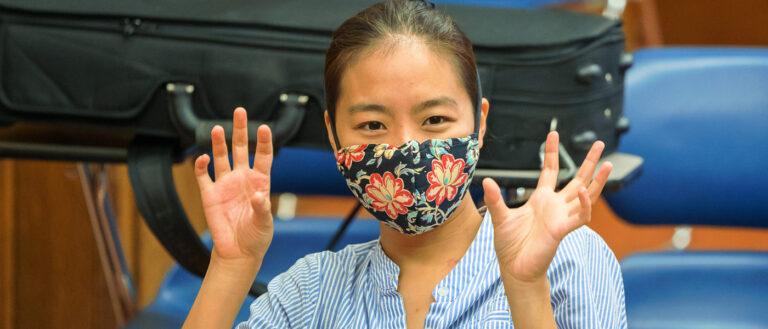While one semester has come to an end, another is soon to begin! For those students who may be looking to get a jump on the spring semester, Case Western Reserve is again offering a limited number of January Session classes.
This year’s January Session allows students to get a jumpstart on the spring semester and complete a course at an accelerated pace in January without encumbering additional tuition.
The list below represents January Session classes with availability as of Dec. 17. To learn more about the courses below, visit the Student Information System (SIS). January Session courses are denoted in SIS with course dates beginning Jan. 3.
CLSC (Classics) 295: Medical Terminology
Jan. 3–24
A self-paced, computer-assisted course on the classical foundations (etymology) of modern English as well as the basic principles on which roots, prefixes and suffixes combine to give precise meanings to composite words, which is then applied toward learning medical, biomedical and scientific terminology.
ENGL 325 and THTR 335: Shakespeare: Comedies/Romances
Jan. 4–22
Close reading of selected plays of Shakespeare in the genres of comedy and romance (e.g., The Merchant of Venice, Twelfth Night, Measure for Measure, The Tempest). Topics of discussion may include issues of sexual desire, gender roles, marriage, the family and genre conventions. Assessment may include opportunities for performance.
A student may not receive credit for both ENGL 325 and ENGL 325C. Offered as ENGL 325, ENGL 325C, ENGL 425, and THTR 335.
ITAL 101: Elementary Italian I (limited availability)
Jan. 3–24
This introductory course will stress mastery of the sound system and basic sentence structure of spoken and written Italian. Independent laboratory practice is a requirement.
PHIL 222: The Science of Happiness
Jan. 3–29
What actually makes us happy? Scientific research shows most of us get this badly wrong. For instance, money is far less important, and embracing negative emotions is far more important than most people realize. When philosophy first got started, it focused on the single most practically important question anyone can ask: How can I live a good life?
A recent boom in scientific research is now validating insights from traditions that take this approach of philosophy as a way of life, including ancient Greek, eastern and continental schools of philosophy.
Open to all students (no prerequisites), this course combines intellectual inquiry with experiential approaches, blending philosophical insight, evidence-based interventions and cutting-edge science. For instance, students will learn about approaches to emotion regulation and stress resilience all the way from the ancient Stoics to recently published work in psychological science. This course won’t make you happy. It will sometimes make you sad. It will expose you to tools that you can use to improve your physical and psychological well-being, and—most important of all—your sense of purpose in life.
SPAN 101: Elementary Spanish I (limited availability)
Jan. 3–22
This course is for students who wish to establish a solid foundation in the language. Open to students who have little or no prior knowledge of Spanish. The course will introduce the learner to all regular, stem-changing and irregular verbs. In addition, the comparison of ser v. estar, saber v. conocer, tener with noun expressions, emotional and mental states and prepositions of location. Students will learn the mechanics of pronoun usage; reflexive, direct object, indirect object and double object pronouns. Lexical expressions, useful vocabulary, nouns, adverbs and adjectives will be acquired via themed chapters.
Cultural topics also will be explored, providing a glimpse into the daily life of Spanish-speaking countries. This course concludes with learning the past tense forms: preterit and imperfect.
Upon completion of the course, the student will be able to master basic conversation, listening, reading comprehension and writing skills related to everyday life, including appreciation and awareness of Hispanic multiculturalism.

